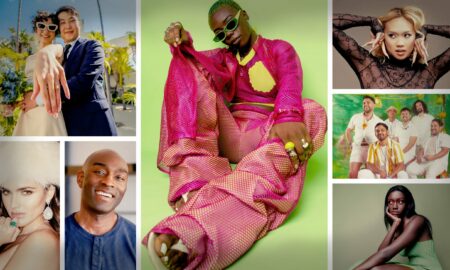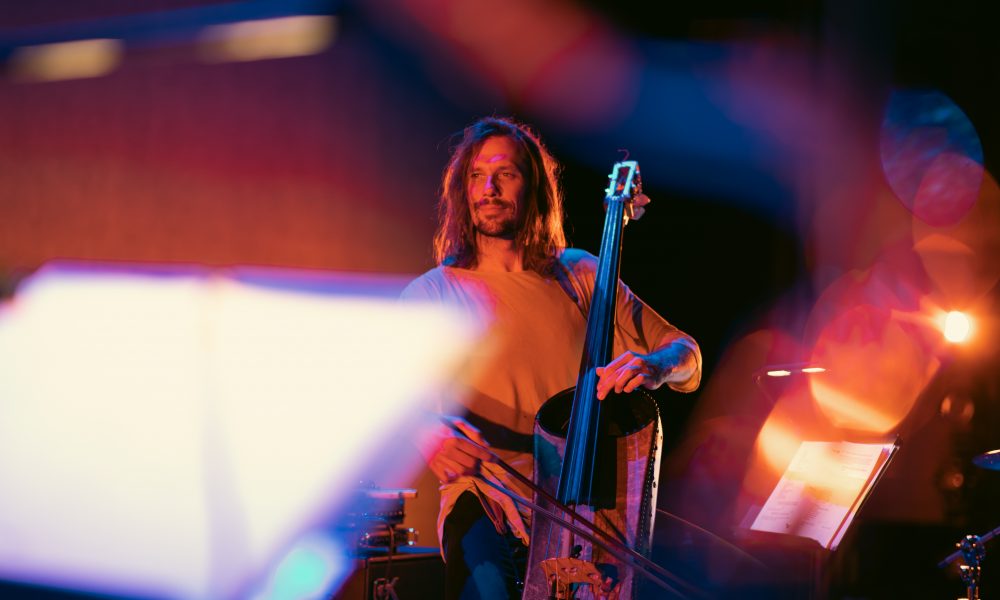

Today we’d like to introduce you to Miles Jay.
Hi Miles, thanks for sharing your story with us. To start, maybe you can tell our readers some of your backstory.
I was born in Tampa, FL, and grew up in Newbury Park, CA, to an artist mother and musician father. I played some instruments as a hobby growing up, but it wasn’t til high school, when I discovered an upright bass at a family friend’s house, that I really fell in love with music and strings. I took this bass to college for music to study jazz and classical music, and halfway through my time there, I began to get more and more involved in the University Middle East ensemble. I found in this group a counterbalance to the rigorous world of modern jazz and classical music. In particular, the unique scales and modes of many of these traditions spoke to my heart deeply, and the vibe of this half-student / half-community ensemble was really welcoming.
I began to study ethnomusicology under Professor Scott Marcus, as well as the Arabic language, and began playing bass with a renowned Arabic music ensemble from San Francisco led by violinist Georges Lammam. Looking back, I’m not surprised… my absolute favorite piece of music as a child was Russian composer Rimsky Korsakov’s Sheherazade; which was his symphonic ‘fantasy” of Persian and Middle Eastern music and storytelling.
My last semester of university before graduating. I lived in my car and practice room to save up to travel to Egypt and try to pursue some gigs there. On September 15, 20o4, I flew to Cairo with my upright bass for what I planned to be a 2-month trip, though I had no idea what was coming.
In short, these two months turned into two years in Cairo… I began working in the Cairo Opera orchestra, though I quickly left that for more traditional music ensembles. As a bassist, I found a niche there, playing for many major artists and learning loads in the process. Half a year after moving there, I got my first big break; I was invited to play for one of Africa’s most famous singers, Youssou N’Dour in Senegal for a festival. He had just won the Grammy for Best World Music Album, and the next thing I knew, I was on tour with him around the US as his bassist and associate music director, opening the 6-week tour at Carnegie Hall in NYC.
This experience revealed to me the scope of what was possible there and began the next 10 years of my career in the Middle East. After the tour finished, I used the money I made to buy a laptop and recording gear and went back to Cairo for another year. There, I produced two albums with two bands I was in there, both of which got picked up by a Lebanese record label called Incognito. They brought me and the bands to Beirut for the album releases and to invite me to collaborate with their artists in Lebanon and Syria. During this 2-month trip, I fell in love with a girl in Beirut and discovered that the famous nightlife of Lebanon was a musician’s paradise… loads of work and opportunity, and again, this 2-month trip turned into several years in Beirut.
This period of 2008 – 20011 was one of lots of travel for gigs and tours from Lebanon to Europe, Dubai, and across the Middle East. I played a period there with LA-based Persian band NIYAZ and began working with some the greatest Lebanese artists, including Ziad Rahbani, Mashrou’ Leyla, Zeid Hamdan, as well as the film director Nadine Labaki and her husband and composer Khaled Mouzennar, ultimately working as an instrumentalist and arranger on three of her films, including the Oscar-Nominated “Caphernaum.” Though at the height of it all, I was suddenly deported for a work visa “violation” and got sent back to Egypt rather suddenly with just the clothes on my back.
This devastating turn of events was like waking up from a dream… and I had to ultimately borrow a bass in Cairo and scavenge for work and have friends bring my clothes and computer from Lebanon… I lost the girl and got fined by the government out of a lot of my saving there. It was gnarly. 9 months later I did make it back to Beirut and wrap up my life and apartment thanks to a work visa from Nadine the director for her next film “Where do we go from here,” however I couldn’t stay a day longer than the work period.
But in this upheaval came a string of new opportunities… I’d been working for years with Iraqi mega star Oud player Naseer Shamma, and through him, I’d met many great artists of the region and the world. One in particular was the famous Greek musician Ross Daly, who had sort of made me an open invitation to work with him in Crete. With only a few days’ notice, he graciously did welcome me to Crete and opened his world up to me like a father and mentor. Suddenly I was playing loads of wild Greek events, weddings and tavernas, staying with him and his wife and music partner Kelly Thoma, and even attending classes at his school “Labyrinth” for modal music. I stayed with them for 7 months in Crete before heading back to the US.
Looking back, this period really empowered me to began to seriously branch out into other string instruments. I began to play the Syrian Buzuk, Cretan lyra, and Armenian / Turkish Saz here and shortly after released my first solo album of original music on these instruments, entitled “the Troposphere.” I didn’t really promote this album at all, but it did earn me a Sundance Composers Fellowship and got me my first film scoring gig on the Netflix film “Through a Lens Darkly, a History of Black Photographers.”
I was also approached during this time back in the States by my Egyptian friend Mina Girgis and Ethiopian singer Meklit Hadero to be the musical director for a project they’d just initiated called the Nile Project. This was to be a collective of musicians from the entire stretch of the Nile River, which would collaborate on music and tour to celebrate both the shared cultural heritage of the Nile basin countries, as well as raise awareness and an initiative toward sustainable environmental practices across borders in the region. This became the focus of my life for 4 years, selecting the musicians and curating the collaborative process during annual creative residencies in Egypt, Uganda, and Ethiopia, as well as tours around East Africa and across the US in partnership with universities such as Dartmouth, Princeton, and Stanford. In total, the 13-member Nile Project played at some 40 universities and over 100 concerts and released two acclaimed albums, “Aswan” and “Jinja,” during my time with them until 2015.
In 2015, upon the culmination of a 5-month US tour with the Nile Project, I felt like it was time to get my feet back on the ground in LA, where I am from. And a month after returning, as a music camp in the sierras, I reconnected with an old friend and acquaintance, the great French violinist Fabrice Martinez. We began playing a lot together at the Petit Ermitage Hotel in Weho and founded the LA-based Gypsy punk jazz band “Axon Orkestra” with our longtime friend and guitarist Dusty Brough and my brother and drummer Ian Jay. This band continues to be a staple of the LA Balkan and Middle Eastern music after-hours scene, and while primarily a trio now, serves as a collective upon which many guest artists join.
I have continued to work as a composer, bassist, and multi-instrumentalist on a wide range of cinematic projects and documentaries, as well as taking some of the “Gypsy” musical influence into the hit Netflix show “Peaky Blinders” season 6 as a credited instrumentalist and arranger. Most recently, in the last two years, I joined the band Beats Antique as their new string player and have toured with them extensively, including shows at Red Rocks in Colorado, Lightning in a Bottle Festival, and Meow Wolf.
When I’m not on the road, currently in LA, I have regular residencies playing my collection of Mediterranean and Middle Eastern instruments, Saz, Oud, Lyra, Setar, and Ney, at Weho restaurant/nightclubs “Casa Madera” and “Members.”
Looking back on how this journey is unfolding, I’m amazed and grateful at how the pursuit of a sound I loved a little kid has allowed me to work in such diverse musical and cinematic projects in such a variety of roles. Thanks for reading!
Would you say it’s been a smooth road, and if not, what are some of the biggest challenges you’ve faced along the way?
It’s been a road blessed with opportunity and, indeed, some struggles.
The deportation I mentioned before from Lebanon was emotionally and logistically the hardest, as it took years to sort out, and many false summits and three total deportations. I was only able to come back with an “artist” visa, but what really amounted to a prostitution visa? The level of corruption and exploitation faced by women working on that visa there was never known to me til I had to line up monthly with many of them at the general security building, sign the same contract, and pay the high fees and random charges, watching a large percentage of my earning get eaten up by that system in Beirut.
I had a safe time for the majority of the years I lived abroad, and I would always speak loudly, and in gratitude to the people of the region for the safety, I felt in the Middle East as a foreigner. However, I was very affected by one single incident in Alexandria in 2014, when I was caught in the middle of an attack on a theater by a resistance movement to the government of Sisi there. Unloading a bus with instruments at the beautiful UN-funded Library of Alexandria, the security forces near me came under fire from numerous snipers in the building across the street. I found myself crawling across the ground, avoiding fire from Gunmen and tanks until I made it back inside, where the theater was under siege for almost 3 hours under steady gunfire and RPG attacks. I was with 6 musicians of the Nile Project; the others were thankfully at the hotel, and I’ll never forget the calming nature of the musicians from Uganda and Burundi, who were absolutely cool during the whole thing. We saw soldiers die that day and very much wondered what would happen were we to be confronted directly with this opposition. We escaped with dozens of the staff of the library through and underground tunnel, one of the Ethiopian musicians giving me his beanie hat to cover my blond hair when we made it to the exit. This single incident gave me a taste of what citizen in the region endure too often and taught me a lot.
And, of course, it’s also been a struggle making ends meet as an artist… I had to work half a year as a bartender in 2008 and another half year in construction in 2016 to make it through some dry spells, but I sincerely think that work helped me appreciate more and dig deeper into the career path I want in music. Renting in LA is tough, and work does come in waves, though lately, it’s pretty steady.
Can you tell our readers more about what you do and what you think sets you apart from others?
I specialize in extended techniques on upright bass, both with the bow and plucked styles, as well as around a dozen other string instruments from the Middle East, East Africa, and the Mediterranean.
I would say I am known for this as well as having also designed and built my own upright bass to both facilitate airplane travel and blend better with traditional instruments. This is featured in the photos I shared with y’all.
I’m proud of having risen to various challenges that came to me by way of opportunity and chance. I love to learn on the job and take on new challenges that utilize my skills in new ways and force me to grow quickly. I say yes to a lot of wild production gigs that force me to go into overtime, both to meet and hopefully exceed the expectations of the team. This has led me to renowned stages and productions like Carnegie Hall, Peaky Blinders, Sundance, and Red Rocks.
Who else deserves credit in your story?
My Mom and Dad are great artists, people, and role models. They are naturally positive, constructive, and team players, and they instilled in me a lot of patience and empathy, which helps in this industry.
My university professor, Dr. Scott Marcus, as I mentioned, opened the door to Middle Eastern music.
Fathy Salama in Cairo brought me into the world of Youssou N’dour and taught me a lot about creative fusions of musical styles.
Meklit Hadero from the Nile Project, who has brought me into many great spaces to play with her, introduced me to amazing people along the way, including the TED conventions and UN.
Ross Daly, who generously employed me and taught me so much about Near Eastern music and how to approach it as an outsider with both a deep respect for the tradition as well as a sense of how to innovate.
Nick Launey, the score producer for Peaky Blinders, is a rock legend and brought the best out of everyone I saw come in to record during our 3 weeks together in London.
Tommy Cappel and Zoe Jakes from Beats Antique, who are brilliant artists and creative energies, taught me the depth of “conversation” among elements in music and stage settings.
Zeid Hamdan, my buddy and producer of my first album who always puts the music first and taught me how to let go of my ideas and ego and look at my art more objectively.
Contact Info:
- Website: www.milesjay.com
- Instagram: @milesjaymusica
- Facebook: @milesjaymusica
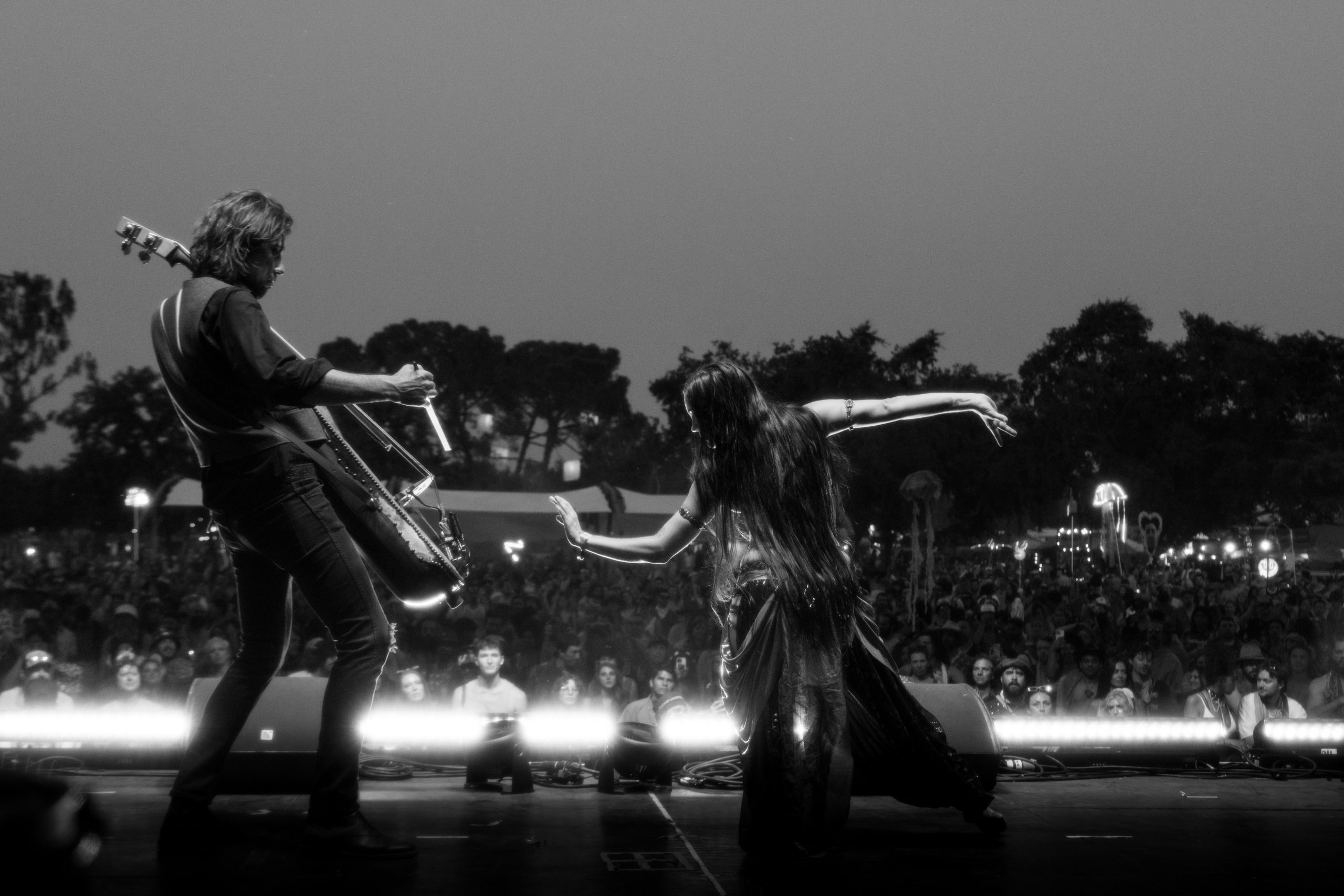
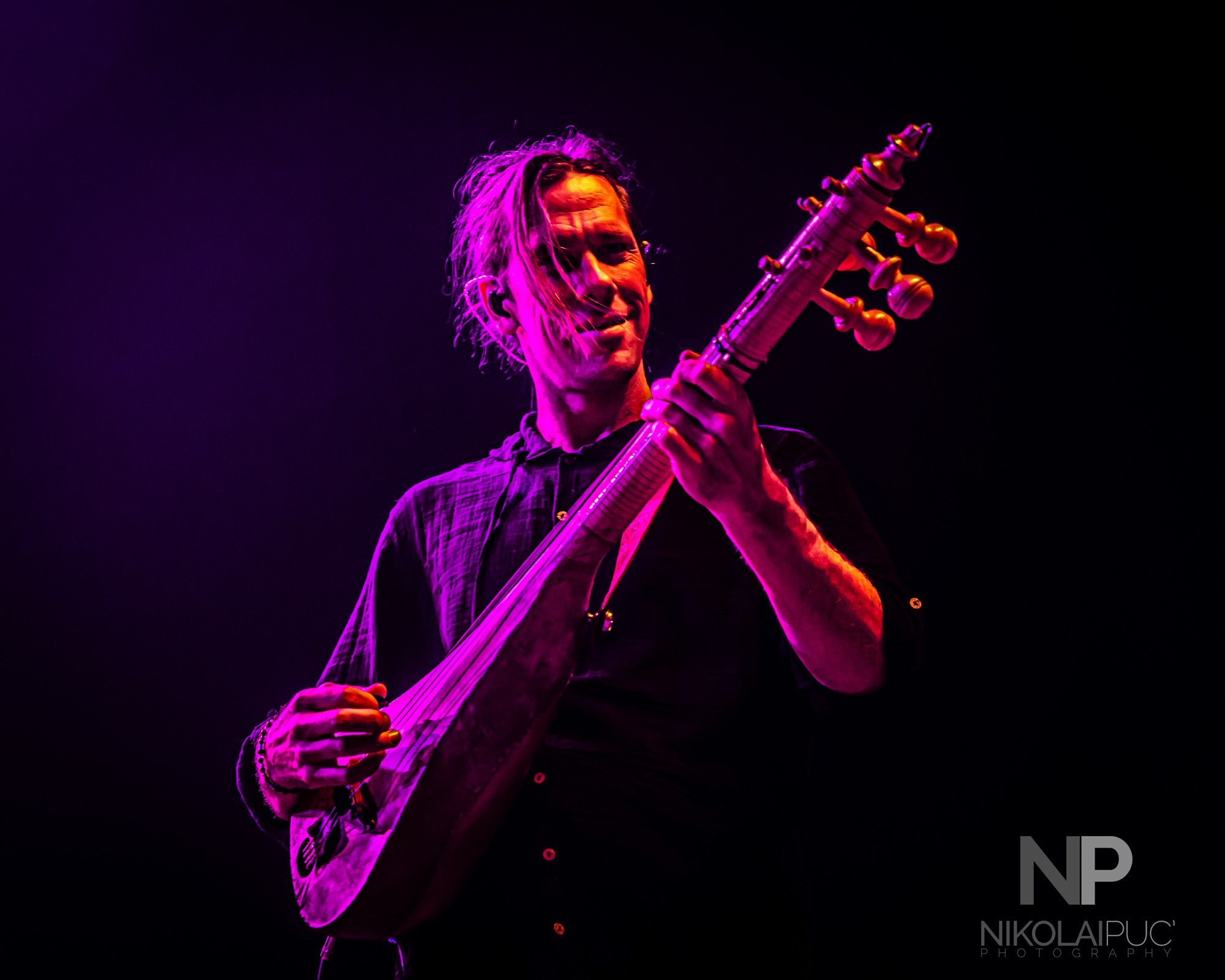
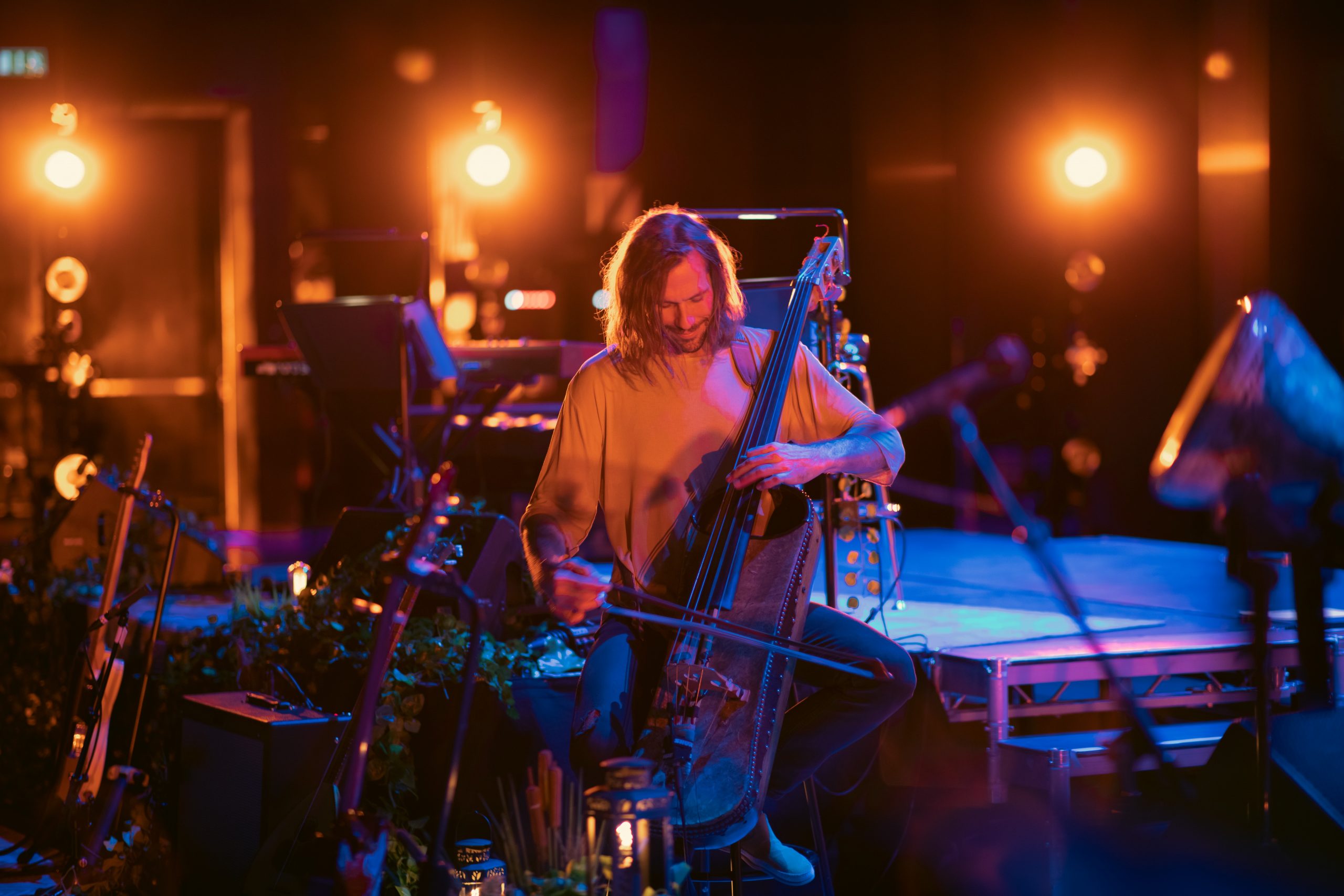

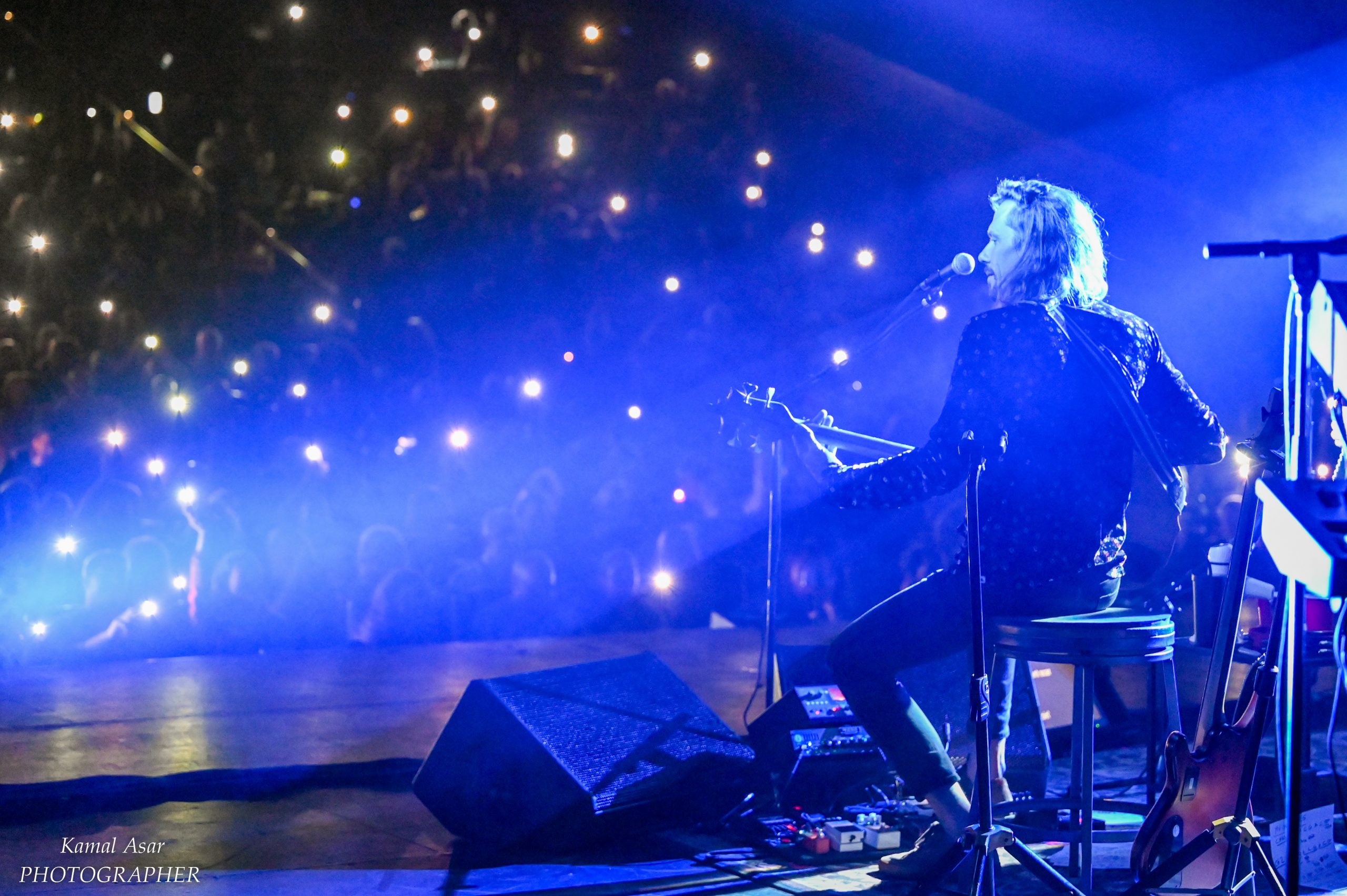
Image Credits
Rachel Grey
Cromwell Ojeda
Kamal Asar
Nicolai Puc

